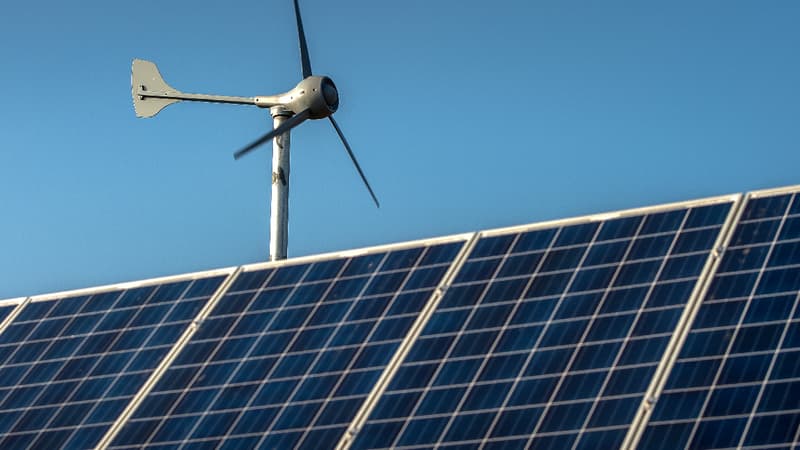Amid rising energy prices, the European Parliament voted on Wednesday to double the share of renewables by 2030, but NGOs criticize keeping biomass (wood burned for energy) among them.
Meeting in Strasbourg, MEPs adopted their position on two key aspects of the climate plan, ahead of negotiations with member states to finalize the texts. In this plan, the European Commission proposes a binding target of 40% renewable energy in the European energy mix by 2030, compared to the target currently set at 32%. The Twenty-Seven had endorsed his proposal in late June.
Meanwhile, MEPs voted overwhelmingly to raise the 2030 target to 45%. This is a doubling compared to the 22% that renewables currently weigh in the European mix, hailed by environmental NGOs.
Greater use of biofuels and hydrogen in transport
The war in Ukraine “requires a broader reorientation of our energy policy and an accelerated development of renewable energies, to bring more independence and security,” argues MEP Markus Pieper (PPE, right), rapporteur of the text.
The Parliament aims at 49% renewables in the energy consumption of buildings by 2030. Each State would also be obliged to reduce greenhouse gas emissions in transport by 16% (compared to the 13% proposed by the Commission), thanks to the increased use of biofuels and hydrogen.
“Maintaining the incentives to develop agrofuels (especially based on rapeseed and sunflower) runs the risk of increasing the food crisis,” warns Neil Makaroff, from the Réseau Action Climat NGO federation.
End of subsidies to biomass power plants
The status of biomass has also sparked heated debate. It is true that MEPs voted to end public subsidies for biomass power plants and propose to limit the share of “primary woody biomass” (wood intended for energy production) in energy considered renewable to the level of the share that represented in 2017-2022.
Biomass, therefore, is still considered “green”: “Let’s take a sustainably managed forest, the trunks will be used for construction and furniture”, but the rest, branches and roots, “can contribute to the energy transition” Markus Pieper has argued. Other voices denounce any use of biomass.
36-40% reduction in final energy consumption by 2030
Another pillar of the climate plan: the Commission proposes to reduce final energy consumption in the EU by 36% in 2030 compared to a scenario drawn up in 2007, promoting energy savings and less energy-intensive technologies. This objective at a continental level was taken up at the end of June by the European Ministers of Energy.
But MEPs have called for a reduction of at least 40% compared to the 2007 scenario, with binding national contributions and no longer indicative, accompanied by a mandatory energy saving target higher than that required by the Commission.
The Parliament wants to oblige the States to reduce the consumption of their public sector by 2% per year (compared to the 1.5% of the Brussels project), and impose the renovation of at least 3% of the total area of public buildings each year, including social housing.
Source: BFM TV


